OmniFaces comes with an entire package dedicated to manipulate EL artifacts, named org.omnifaces.el.
In this post, I will focus on a class named ExpressionInspector,
which can be very useful when you need to programmatically inspect a ValueExpression.
One of the most important method of this class is named, getMethodReference(),
and, as its name suggest, it gets a MethodReference from a ValueExpression.
If the ValueExpression
refers to a method, this will contain the actual method. If it refers to a
property, this will contain the corresponding getter method. Via the MethodReference,
we have access to several information as follows:
·
MethodReference#getBase() - Returns the base
of the EL method expression. Usually, this is the backing bean on which the
method behind MethodReference#getMethod()
should be invoked.
·
MethodReference#getMethod() - Returns the
concrete java.lang.reflect.Method
instance of the EL method expression. Usually, this is a method of the class
behind getBase().
·
MethodReference#getActualParameters() -
Returns the actual (evaluated) parameters of the method call. If there are no
params, then this returns an empty array, never null. Those should be passed
to Method#invoke(Object,
Object...).
·
MethodReference#isFromMethod() - Returns
true
if this method reference is from an actual method call and not from a getter of
a property.
·
MethodReference#getMethodInfo() - Returns
the standard EL MethodInfo
of the MethodExpression
where this MethodReference
has been extracted from.
In order to
have some examples, we apply the below code to several ValueExpressions:
import
org.omnifaces.el.ExpressionInspector;
import
org.omnifaces.el.MethodReference;
import
org.omnifaces.util.Faces;
...
ELContext
elc = Faces.getELContext();
ValueExpression
ve = getValueExpression("value");
System.out.println("-------------------------ExpressionInspector------------------------------");
System.out.println("getValueExpression(\"value\"):
" + ve);
MethodReference
methodReference = ExpressionInspector.getMethodReference(elc, ve);
System.out.println("MethodReference#getBase():
" + methodReference.getBase());
System.out.println("MethodReference#getMethod():
" + methodReference.getMethod());
System.out.println("MethodReference#getMethodInfo()#getName():
" + methodReference.getMethodInfo().getName());
System.out.println("MethodReference#getMethodInfo()#getReturnType():
" + methodReference.getMethodInfo().getReturnType());
System.out.println("MethodReference#getMethodInfo()#getParamTypes():
");
Class<?>[]
paramTypes = methodReference.getMethodInfo().getParamTypes();
for (Class
paramType : paramTypes) {
System.out.println("Parameter info:\n
name:" + paramType.getName() + ", simple name: " +
paramType.getSimpleName() + ", type:" + paramType.getTypeName());
}
System.out.println("MethodReference#getActualParameters():
");
Object[]
actualParams = methodReference.getActualParameters();
for (Object
actualParam : actualParams) {
System.out.println("Actual parameter:
" + actualParam);
}
System.out.println("MethodReference#isFromMethod():
" + methodReference.isFromMethod());
System.out.println("--------------------------------------------------------------------------");
·
in the first case we have a simple managed bean
(PlayerBean)
with a field, named atp. The inspected ValueExpression will be: #{playerBean.atp}. See
below figure:
Output:
-------------------------ExpressionInspector-------------------------------
getValueExpression("value"):
/index.xhtml @14,56 value="#{playerBean.atp}"
MethodReference#getBase():
atp.singles.PlayerBean@3b45398a
MethodReference#getMethod():
public java.lang.String atp.singles.PlayerBean.getAtp()
MethodReference#getMethodInfo()#getName():
getAtp
MethodReference#getMethodInfo()#getReturnType():
class java.lang.String
MethodReference#getMethodInfo()#getParamTypes():
MethodReference#getActualParameters():
MethodReference#isFromMethod():
false
---------------------------------------------------------------------------
·
next, we inspect a ValueExpression that point
out a field encapsulated in another field. The inspected ValueExpression will be: #{playerBean.player.name}.
See below figure:
Output:
--------------------------ExpressionInspector-------------------------------
getValueExpression("value"):
/index.xhtml @14,64 value="#{playerBean.player.name}"
MethodReference#getBase():
atp.singles.Player@5a268b
MethodReference#getMethod():
public java.lang.String atp.singles.Player.getName()
MethodReference#getMethodInfo()#getName():
getName
MethodReference#getMethodInfo()#getReturnType():
class java.lang.String
MethodReference#getMethodInfo()#getParamTypes():
MethodReference#getActualParameters():
MethodReference#isFromMethod():
false
Info: ----------------------------------------------------------------------------
·
further, we inspect an ValueExpression that
points out a managed bean method (not a getter) without arguments that returns a String. The inspected ValueExpression
will be: #{playerBean.uppercasePlayer()}.
See below figure:
Output:
--------------------------ExpressionInspector-------------------------------
getValueExpression("value"):
/index.xhtml @14,70 value="#{playerBean.uppercasePlayer()}"
MethodReference#getBase():
atp.singles.PlayerBean@5d8b700b
MethodReference#getMethod():
public java.lang.String atp.singles.PlayerBean.uppercasePlayer()
MethodReference#getMethodInfo()#getName():
uppercasePlayer
MethodReference#getMethodInfo()#getReturnType():
class java.lang.String
MethodReference#getMethodInfo()#getParamTypes():
MethodReference#getActualParameters():
MethodReference#isFromMethod():
true
----------------------------------------------------------------------------
·
finally, we inspect a ValueExpression representing
a call of a managed bean method that receive two arguments and returns. The
inspected ValueExpression
will be: #{playerBean.changeRank(2,
5)}. See below figure:
Output:
--------------------------ExpressionInspector-------------------------------
getValueExpression("value"):
/index.xhtml @14,69 value="#{playerBean.changeRank(2, 5)}"
MethodReference#getBase():
atp.singles.PlayerBean@253bf759
MethodReference#getMethod():
public atp.singles.Rank atp.singles.PlayerBean.changeRank(int,int)
MethodReference#getMethodInfo()#getName():
changeRank
MethodReference#getMethodInfo()#getReturnType():
class atp.singles.Rank
MethodReference#getMethodInfo()#getParamTypes():
Parameter info:
name:int, simple name: int, type:int
Parameter info:
name:int, simple name: int, type:int
MethodReference#getActualParameters():
Actual parameter: 2
Actual
parameter: 5
MethodReference#isFromMethod():
true
Info: ----------------------------------------------------------------------------
Enjoy!
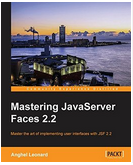

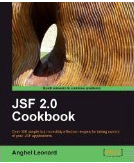






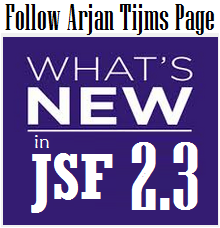

 Arrays
Arrays Converters
Converters



 JSF 2 Tutorials at www.mkyong.com
JSF 2 Tutorials at www.mkyong.com  JavaServer Faces (JSF) Tutorial
JavaServer Faces (JSF) Tutorial 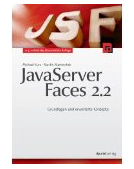
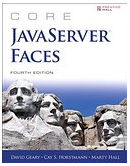
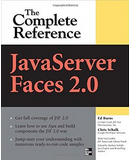
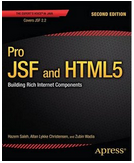




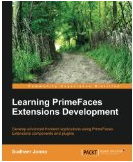



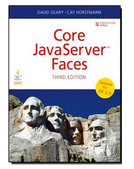

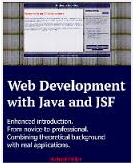
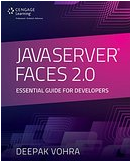

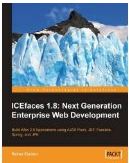




Niciun comentariu :
Trimiteți un comentariu